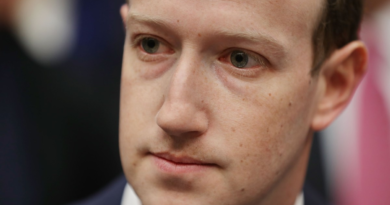As its workers strike over burnout and low wages, Kaiser Permanente strikes a deal to use an AI Copilot from Nabla
Yesterday, 75,000 workers at healthcare giant Kaiser Permanente embarked on a three-day strike to protest understaffing, burnout and low wages — setting a record for the biggest healthcare strike to date in U.S. history. But timing is everything in medicine. While Kaiser Permanente works through terms with union reps, another interesting development has emerged: it has inked a deal with Nabla, the AI healthcare startup from Paris, to provide an AI assistant to doctors and other clinicians in its network to reduce the amount of time they spend on admin: the AI will help with writing up notes and doing other administrative work, based on conversations that it listens to and transcribes.
Nabla’s Copilot product, which was launched in March of this year, will be rolled out to Kaiser Permanente physicians in Northern California initially, covering 10,000 doctors in all. The service will be available to all of them, but using it will be optional. If the service proves to work well, the idea will be potentially to roll it out across the rest of Kaiser Permanente’s footprint in the U.S.
From what we understand, Nabla and Kaiser Permanente first ran a two-week pilot of the service in August of this year. The process of turning that into a commercial deal might have normally taken much longer, so it’s worth wondering if the current labor actions had a role to play in speeding that up.
Still, it’s worth making clear that for now, neither Nabla nor Kaiser Permanente are working on tools to take over the clinical work the doctors and others are doing.
That’s not to say that others are not. Corti, another AI healthcare startup, raised $60 million in funding to continue building out its technology: another assistant for clinicians, but one where the aim is to help them with their patient assessments. Corti has some impressive deals in place already, too, and it says that it’s already working with more than 100 million patients/year.
And there are other industries where AI has become a major point of contention with labor groups. In the world of entertainment, anticipating the growing use of AI to recreate human likeness and voices, the SAG-AFTRA actors union is striking right now over the very issue of AI and how it will impact how they work and how they are compensated.
The pain point that Nabla is addressing is that the admin that doctors and others are required to do after seeing patients — forms that are needed for compliance and other purposes — can take hours to get through each day.
“A doctor might make as many as 4,000 mouse clicks in a 10-hour shift,” Alexandre Lebrun, the CEO and founder of Nabla, said in an interview.
So most of the time, those clinicians will put off getting to it. As a result, that work stretch, and the work that’s done in that stretch, are often referred to as “pajama time,” a reference to how clinicians get to it typically at the end of the day, in their nightclothes. The burnout that results from these extra hours of work on top of work has been a persistent problem in the industry for years.
Nabla’s copilot, as we have described before, essentially works as a virtual assistant. It listens to conversations and other interactions that are taking place with patients and matches up what it hears with other supplementary documents. And then it translates the resulting data into different document-based endpoints — such as prescriptions, follow-up appointment letters, consultation summaries — which typically result from those meetings. Doctors in the pilot cut out 1.5 hours of admin time using Nabla’s Copilot, the company said.
When we first wrote about the service, it had been based around GPT-3, the large language model built by OpenAI, which is used to generate human text and is powering hundreds of applications. Since then, Copilot has upgraded to GPT-4, but it’s also largely running the majority of its services now on its own LLM, although Lebrun said that it does still use GPT-4 in some areas to verify the work of its own LLM.
“GPT-4 is still the gold standard,” he said. “Because it’s very accurate and powerful, we use it to process feedback to correct what we do.”
(Lebrun, who has a long and interesting background in the world of virtual assistants and natural language processing, is very much a founder to watch. His sold his first startup, VirtuOz, a “Siri for enterprise,” in 2013 to Nuance to spearhead its development of digital assistant technology for businesses. He then founded and eventually sold his next startup, Wit.ai, to Facebook, where he and his team then worked on the social network’s foray into chatbots in Messenger. He then helped establish and run FAIR, Facebook’s AI research centre in Paris, which is headed up by Yann LeCun, the Turing Award winner who is Meta’s chief scientist. LeCun is one of his advisers now at Nabla.)
Nabla has raised just under $23 million from investors that include Tony Fadell, Firstminute Capital and Artemis. From what we understand, it’s starting discussions now with investors to raise more.




